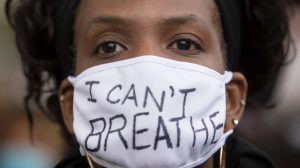
Protests erupted across the United States, Canada, and the world over the weekend, as thousands demonstrated against racism and police brutality, specifically towards members of the Black community. These demonstrations, in solidarity with the Black Lives Matter movement, aim to seek justice for George Floyd. Floyd was killed during an arrest in Minnesota on May 25, after a white police officer kneeled on his neck for nearly nine minutes.
These situations, and others like them, are sparking plenty of conversation about anti-black racism as well as police brutality, explained Carl James, a professor and Jean Augustine Chair in Education, Community and Diaspora in York University’s Faculty of Education. It is especially important to discuss these matters with younger generations, he said, describing them as being tasked with finding ways to spark change.
“Bringing these understandings to children is not to make them feel like it’s them, it’s to understand how the culture in which they live might have contributed to what we are seeing today,” says James. “It’s not to see privilege as purely a personal thing, but how privilege is facilitated by a system in which we live that provides opportunities for people based on skin colour."
